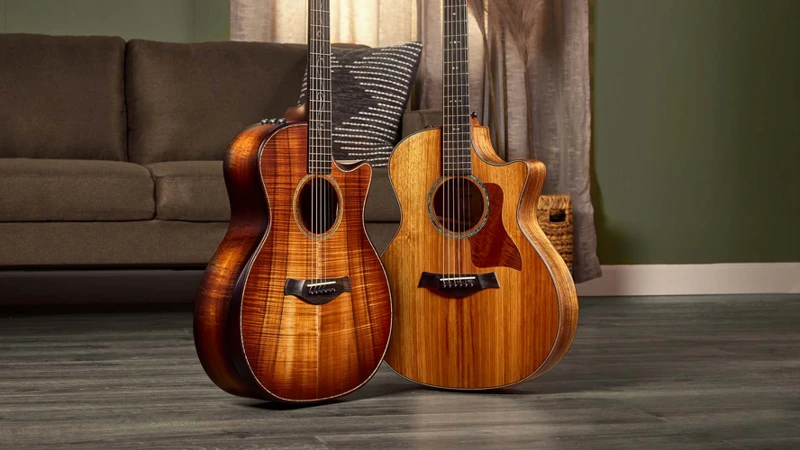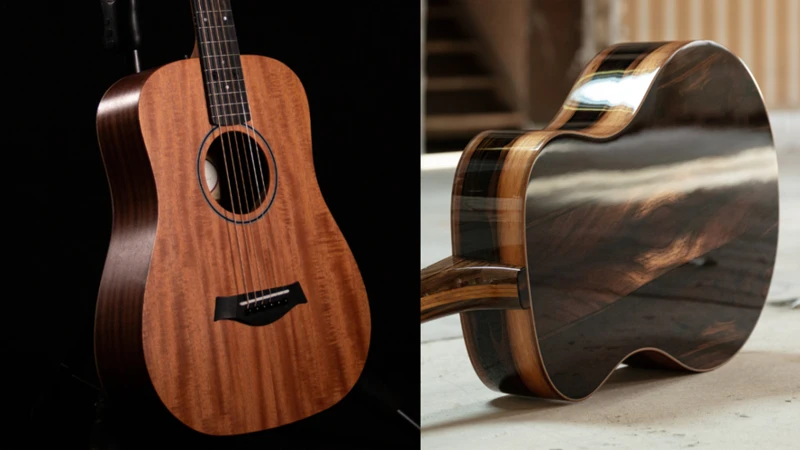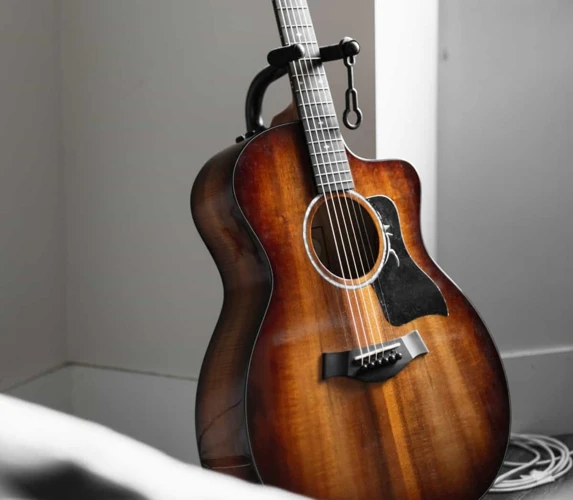Koa acoustic guitars have been gaining popularity in recent years, and for good reason. With their unique tonewood and impeccable craftsmanship, Koa guitars offer a distinct sound and aesthetic that sets them apart from other acoustic guitars. In this blog post, we will explore the pros and cons of Koa acoustic guitars to help you determine if one is right for you.
What is Koa Wood?
Before we dive into the pros and cons of Koa acoustic guitars, it’s important to understand what Koa wood is. Koa is a type of tropical hardwood that is native to the Hawaiian Islands. It is known for its beautiful grain patterns and rich, warm tone. Koa wood is prized for its durability, stability, and resistance to insects and decay.
Pros of Koa Acoustic Guitars
Unique Tone
Koa acoustic guitars have a unique tone that is often described as warm, rich, and complex. The tone is well-balanced, with a strong midrange and clear trebles. Koa guitars also have a pronounced bass response, which gives them a full, resonant sound.
Beautiful Aesthetic
Koa wood is known for its beautiful grain patterns and rich, warm color. Koa acoustic guitars are often stunningly beautiful, with intricate grain patterns and a deep, rich finish.
Durability
Koa is a highly durable wood that is resistant to insects and decay. Koa acoustic guitars are built to last, and with proper care, they can provide a lifetime of enjoyment.
Stability
Koa is a stable wood that is less prone to changes in humidity and temperature than other tonewoods. This makes Koa acoustic guitars a great choice for musicians who live in areas with fluctuating climates.
Cons of Koa Acoustic Guitars
Cost
Koa acoustic guitars are typically more expensive than guitars made from other tonewoods. This is because Koa wood is a rare and highly sought-after material.
Limited Availability
Koa wood is only found in the Hawaiian Islands, which makes it a limited resource. This means that Koa acoustic guitars may be more difficult to find than guitars made from more common tonewoods.
Weight
Koa is a dense hardwood, which means that Koa acoustic guitars can be quite heavy. This may be a consideration for musicians who prefer lighter guitars.
Choosing a Koa Acoustic Guitar
If you’re considering purchasing a Koa acoustic guitar, there are a few things to keep in mind. First, consider the source of the Koa wood. Guitars made with Koa wood from the Big Island of Hawaii are generally considered to be of higher quality than those made with Koa wood from other islands.
Next, consider the construction of the guitar. Look for guitars that are made with solid Koa wood, rather than laminated Koa. Solid Koa guitars will have a richer, more complex tone than laminated Koa guitars.
Finally, consider the brand of the guitar. Some of the most reputable brands that make Koa acoustic guitars include Taylor, Martin, and KoAloha. These brands are known for their impeccable craftsmanship and attention to detail.
Interested in exploring different types of guitars for country music? Check out our articles on acoustic vs electric pros and cons for country guitars, pros and cons of country music guitars, evolution of electric guitars in country music, advanced tone knobs for country music guitars, and advanced alternate picking techniques for country guitar to enhance your musical journey!
Conclusion
Koa acoustic guitars offer a unique tone and aesthetic that sets them apart from other guitars. While they may be more expensive and harder to find than guitars made from other tonewoods, the durability, stability, and beauty of Koa wood make them a worthwhile investment for serious musicians.
When choosing a Koa acoustic guitar, be sure to consider the source of the Koa wood, the construction of the guitar, and the reputation of the brand. With proper care, a Koa acoustic guitar can provide a lifetime of enjoyment.



